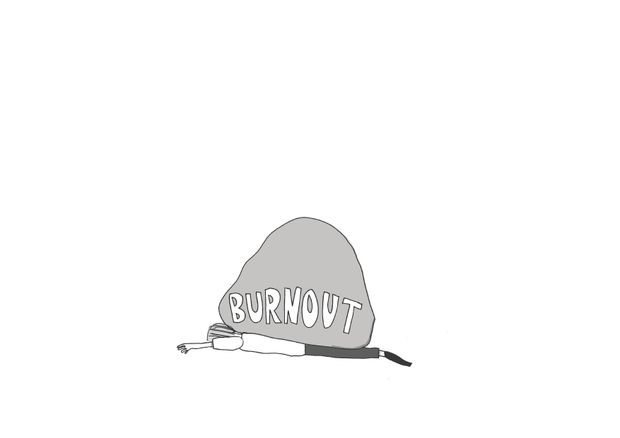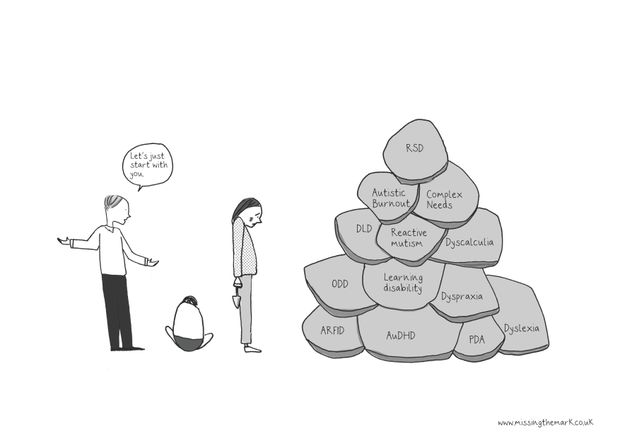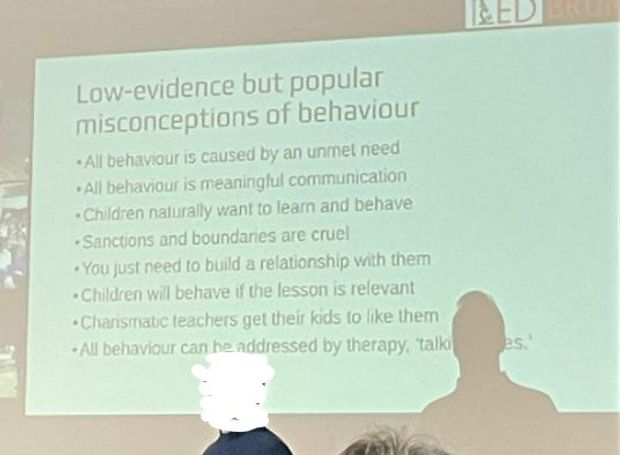


We all respond to the world around us in different ways. This can be seen in our emotions and behaviour. Often, those responses are helpful – it’s useful to fear stepping out into the road when the cars are going by, for example. Emotions can alert us to a problem in our environment.
Sometimes emotional responses go beyond what is helpful and become a problem in themselves. People start to feel anxious all the time, even when there isn’t anything to be afraid of. Sometimes the things that we do in order to feel better – like drinking, or isolating ourselves – can make problems worse. We get stuck, because the things we are doing to try to feel better end up making the situation more complicated.
Mental health professionals define something as a mental health problem when it causes a problem for a person and stops them being able to live their life in the way that they want. Emotions and behaviour are seen as symptoms of the mental health problem. This can include unusual experiences such as hearing voices or paranoid thinking.
The issues which are defined as mental health problems include anxiety, depression, phobias, post-traumatic stress disorder (PTSD), obsessive compulsive disorder (OCD) and substance misuse. In our webinars about mental health problems, you’ll hear about evidence-based techniques to help you and your child get unstuck and to make the changes you or they want to make in their lives.
These webinars are not therapy and should not be used as a replacement for therapy. They are educational self-help webinars, using psychological theory to help you help yourself and your child.

I’m sometimes asked how you can tell if a child is depressed or in burnout. I’ve seen posts in social media saying that this is a crucially important distinction because the treatment for depression is the ‘polar opposite’ of that for burnout. One post I saw said that in depression you’ll be advised to ‘push through’ whilst with burnout it’s essential to rest.

Do they have autistic burnout or is it depression? AuDHD or just autism? Is their silence reactive or selective mutism? Is the reason they are so upset rejection sensitivity dysphoria? Who really knows?

The moment we talk about changing children’s behaviour without considering the context of that behaviour, we are doomed to failure. We will put in place ever harsher consequences, and they will work less and less well.

Here's a hack which could improve teenage mental health. Stop telling teenagers that their GCSEs are the most important thing they'll ever do and that if they don't do well, their future life will be blighted. People say this to motivate teenagers but for many it has the opposite effect. One third of teenagers are not going to do well in their GCSEs no matter how hard they work. This is how the system is designed. It's not one in which everyone can succeed.

A slide from Tom Bennett’s (UK government behaviour tsar) presentation at the ResearchEd conference this weekend has been making the rounds on Twitter/X.

Mental health is in freefall, the media shouts. Waiting lists are longer than ever before. You can’t even get onto those waiting lists unless you’re severely unwell. We need more doctors, more therapists, more help, more support. More funding and more throughput. We need more ‘awareness’.

A clear and engaging introduction to the psychology of mental health, which takes account of a range of perspectives and illustrates how psychologists work in the field today. Psychology of Mental Health will place our current understanding of mental health in context, both historically and culturally. It will discuss various models for understanding mental health, research on causes of mental health problems, and will introduce recent psychology-led alternatives to diagnosis.